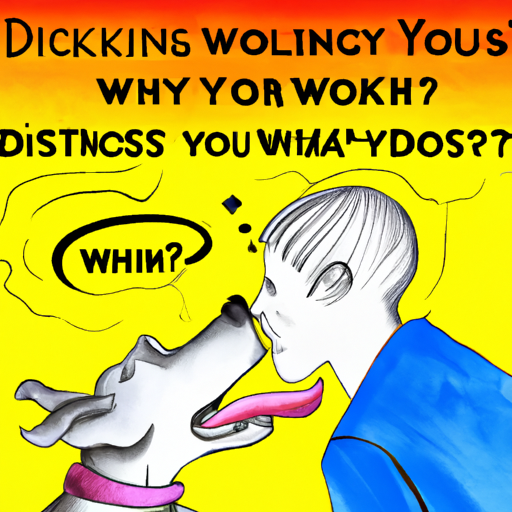Understanding Canine Behavior
Firstly, it’s important to acknowledge that as a caregiver, you’re often the center of your dog’s universe. When your dog approaches you with that tongue hanging out, it’s not just because they’re looking forward to a taste of whatever you’ve just eaten. Dogs communicate and perceive the world differently than we do, and one of those ways is through licking.
Licking is a natural behavior for dogs, dating back to their days as puppies. It’s a way for them to explore their environment, show affection, and even establish hierarchy within their pack.
The Science Behind the Lick
So why does your dog lick your mouth? There are a few scientific theories behind this:
- Submissive Behavior: In the wild, wolves and other canids lick the mouths of more dominant members of their pack as a sign of submission and respect. Your dog might be doing the same to you, acknowledging that you’re the pack leader.
- Affection: Just as humans show affection through hugging or kissing, dogs do the same by licking. They simply want to show you that they love you.
- Taste: Humans often have traces of food or drink on their mouths, which dogs might find appealing.
- Communication: Dogs might lick your mouth to get your attention or communicate their needs.
| Reasons | Explanation |
|---|---|
| Submissive Behavior | Acknowledging you as the pack leader |
| Affection | Showing love and affection |
| Taste | Attracted to the taste of food or drink |
| Communication | Trying to get your attention |
How to Respond to Mouth Licking
As a caregiver, you need to set boundaries with your furry friend. If you’re uncomfortable with your dog licking your mouth, it’s okay to discourage this behavior. Here are some strategies:
- Use a firm, but kind voice to say ‘no’ when they attempt to lick your mouth.
- Redirect their attention to a toy or a treat.
- Reward them when they greet you without licking.
Health Risks of Mouth Licking
While this behavior is generally harmless, there are potential health risks involved. Dogs explore the world with their mouths, and can pick up bacteria, parasites, or viruses that could be passed on to you through their saliva. Regular vet check-ups and vaccinations can help keep everyone healthy.
When to Seek Professional Help
If your dog’s licking becomes excessive or compulsive, it might be a sign of underlying issues like anxiety or a health problem. In this case, it’s best to consult a professional dog behaviorist or a vet.
Frequently Asked Questions (FAQs)
Q: Can I get sick if my dog licks my mouth?
A: While it’s not common, there’s a small chance you could pick up a disease or infection from your dog’s saliva.
Q: How can I stop my dog from licking my mouth?
A: Use a firm voice to discourage the behavior, distract them with a toy or treat, and reward them when they don’t lick.
Q: Why does my dog only lick my mouth and not anyone else’s?
A: Your dog may see you as their primary caregiver and feel the closest to you, which is why they’re more likely to show affection or submissiveness towards you.
Q: Is my dog’s excessive licking a sign of anxiety?
A: Yes, excessive licking can be a sign of anxiety or a health problem. It’s best to consult a professional if you’re concerned.



